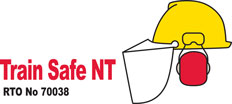
Student Handbook
All students please read the Student Handbook
Go to Student Handbook 2026
If you have any questions or require more information that will assist you, please ask the trainer and he will be able to supply you with advice and all Train Safe NT policies and procedures.
All students must over the age of eighteen (18) at enrolment.
Online Chemical Accreditation - AusChem
Online AusChem for the Northern Territory
Side by Side Vehicles
Side by side utility ROV
Clean Vehicles Biosecurity
Clean vehicles for weed hygiene
NT Cattle Industry AusChem Online
AusChem online for cattle producers in the Northern Territory
4WD Course Darwin Two (2) Day
4x4 training in Darwin
4WD Course Darwin One (1) Day
4WD skills in Darwin
4WD Vehicle Recovery - Bogged
Off road vehicle recovery
4WD Course Alice Springs One (1) day
4WD training in Alice Springs
Welding Two (2) Day Course
Welding metal repair training
Chemical Accreditation - AusChem Darwin
Face to face Course - AusChem
4x4 Mine Site Course - Two (2) days
Mining industry off road driving & recovery
Flexible 4WD Ticket $150
4WD flexible ticket
Chainsaw Training
Chainsaw training
Trailer Course
Reversing trailers a good skill
Small Engine Maintenance
Maintain small engines
Workplace Driver Skills
Drive safer with a better attitude
Treat Weeds Spraying Course
Weed spraying and herbicide use
Online Treat Weeds Course NT
Online treat weeds course for the Northern Territory
Tractors
Tractor training
Nhulunbuy 4WD Course Two (2) Day
4x4 training in Nhulunbuy
Online Work Health Safety
WHS - Online
Quad Bike Course
ATV quad riding and safety
Literacy, Numeracy and Digital Literacy Test
Test your reading & maths skills prior to online course
Replace Statement of Attainment
Lost Statement of Attainment